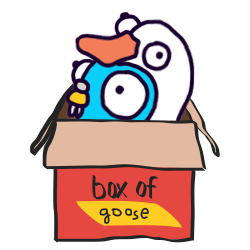Docker configuration for the pressly/goose migration tool.
Based on ideas of the gomicro/docker-goose repository.
Features:
- No need to create your own Dockerfile;
- goose env vars are used;
- docker compose usage;
- all goose commands are available, not only
up; - an image with a gopher in a goose costume in a box is even worse than an image with a gopher in a goose costume.
The following environment variables are required for the image to work correctly:
GOOSE_DRIVER: this should specify the database driver (e.g.,postgres).GOOSE_DBSTRING: specify the database connection parameters in this variable (e.g.,host=localhost port=5432 user=postgres password=postgres dbname=postgres).
The following environment variables are available, but not required:
GOOSE_COMMAND: the goose command to execute,upby default.GOOSE_COMMAND_ARG: argument for the goose command, for example, theVERSIONargument for theup-to/down-tocommands.GOOSE_VERBOSE: if set totrue, goose will be executed with the-vflag.
See the goose usage for available drivers, format of the connection string and available commands.
The image expects the /migrations directory to be mounted to the container,
and it should contain your migration files.
For example, pure docker call:
docker run --rm -v ./migrations:/migrations --network host \
-e GOOSE_DRIVER="postgres" \
-e GOOSE_DBSTRING="host=localhost port=5432 user=postgres password=postgres dbname=postgres" \
ghcr.io/kukymbr/goose-docker:3.20.0Example with up-to command:
docker run --rm -v ./migrations:/migrations --network host \
-e GOOSE_COMMAND="up-to" \
-e GOOSE_COMMAND_ARG="20230607203836" \
-e GOOSE_DRIVER="postgres" \
-e GOOSE_DBSTRING="host=localhost port=5432 user=postgres password=postgres dbname=postgres" \
ghcr.io/kukymbr/goose-docker:3.20.0Example with create command (works since v3.20.0):
docker run --rm -v ./migrations:/migrations \
-e GOOSE_COMMAND="create" \
-e GOOSE_COMMAND_ARG="my_new_migration_name sql" \
ghcr.io/kukymbr/goose-docker:latestDocker compose example:
services:
# ... Add your DB service
migrations:
image: ghcr.io/kukymbr/goose-docker:3.20.0
environment:
- GOOSE_DRIVER=postgres
- GOOSE_DBSTRING=host=postgres port=5432 user=postgres password=postgres dbname=postgres
volumes:
- ./migrations:/migrationsSee the compose.yml file for the full example.
If you need to dynamically override the environment values provided in the docker compose or in the .env files,
add these variables into the environment section with a placeholder as a value, for example:
migrations:
# ...
environment:
- GOOSE_COMMAND=${GOOSE_COMMAND}
- GOOSE_COMMAND_ARG=${GOOSE_COMMAND_ARG}When you can override the values:
GOOSE_COMMAND="create" GOOSE_COMMAND_ARG="test_migration sql" docker compose run --rm migrationsThe latest tag of this image points to the latest commit to the main branch
and not supposed to be used in the production. Always specify a semver tag for production use.




